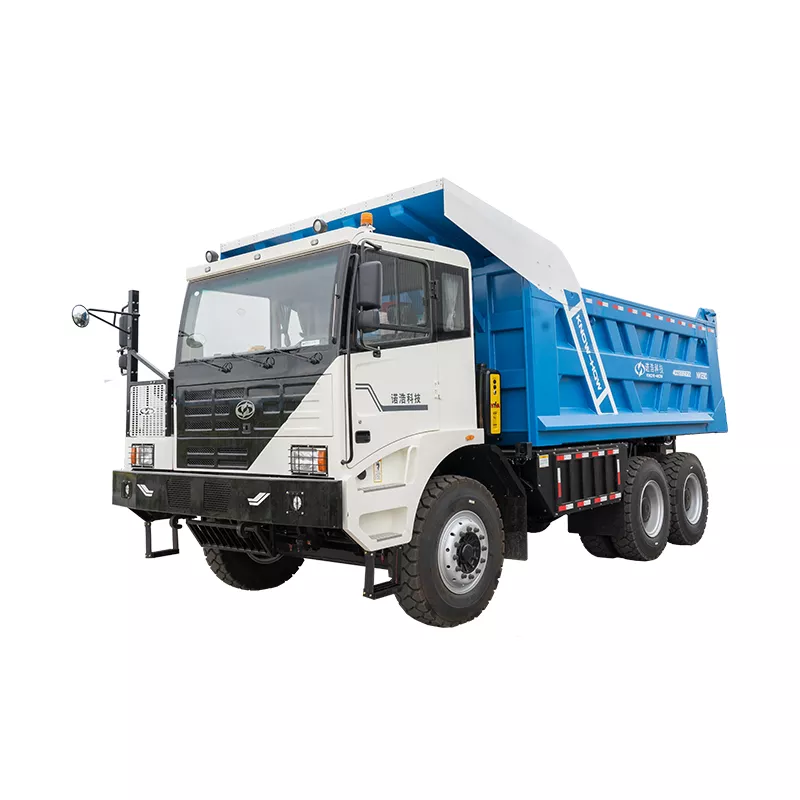- Automobiles & Motorcycles
- Beauty & Personal Care
- Business Services
- Chemicals
- Construction & Real Estate
- Consumer Electronics
- Electrical Equipment & Supplies
- Electronic Components & Supplies
- Energy
- Environment
- Excess Inventory
- Fashion Accessories
- Food & Beverage
- Furniture
- Gifts & Crafts
- Hardware
- Health & Medical
- Home & Garden
- Home Appliances
- Lights & Lighting
- Luggage, Bags & Cases
- Machinery
- Measurement & Analysis Instruments
- Mechanical Parts & Fabrication Services
- Minerals & Metallurgy
- Office & School Supplies
- Packaging & Printing
- Rubber & Plastics
- Security & Protection
- Service Equipment
- Shoes & Accessories
- Sports & Entertainment
- Telecommunications
- Textiles & Leather Products
- Timepieces, Jewelry, Eyewear
- Tools
- Toys & Hobbies
- Transportation
Electric Dump Trucks Vs. Diesel Dump Trucks: A Comparative Analysis
In today's rapidly evolving world, the construction and mining industries are constantly seeking innovative ways to improve efficiency, reduce environmental impact, and cut operational costs. One of the key areas where this transformation is taking place is in the realm of dump trucks. Traditionally powered by diesel engines, electric dump trucks have emerged as a viable alternative with the potential to revolutionize these industries. In this article, we will delve into the differences between electric dump trucks and their diesel counterparts, examining various aspects to help you understand which option might be the best fit for your business.

Dump trucks are the workhorses of the construction and mining industries, responsible for transporting heavy loads of materials from one place to another. Traditionally, diesel engines have been the go-to choice to power these vehicles. However, the rise of electric dump trucks has led to a fundamental shift in the way we think about these machines.
Power Source: Electric vs. Diesel
Electric Dump Trucks
Electric dump trucks are powered by electric motors, typically driven by a high-capacity battery. These batteries can be recharged using various methods, including grid electricity, solar power, or even regenerative braking.
Diesel Dump Trucks
Diesel dump trucks on the other hand, rely on internal combustion engines that run on diesel fuel. These engines have been the industry standard for decades due to their robustness and power.
Environmental Impact
Greenhouse Gas Emissions
Electric dump trucks produce zero tailpipe emissions, making them environmentally friendly. Diesel dump trucks, in contrast, emit carbon dioxide (CO2), nitrogen oxides (NOx), and particulate matter, contributing to air pollution and global warming.
Noise Pollution
Electric dump trucks operate quietly, reducing noise pollution in work environments. Diesel engines are notoriously loud, leading to potential health hazards for operators and nearby workers.
Cost Considerations
Initial Investment
Electric dump trucks typically have a higher upfront cost due to their advanced battery technology. Diesel dump trucks are more affordable at the time of purchase.
Operating Costs
Electric dump trucks have lower operating costs over time due to cheaper electricity compared to diesel fuel. They also require less maintenance.
Performance and Efficiency
Acceleration and Torque
Electric dump trucks provide instant torque, resulting in quicker acceleration. Diesel trucks may have a delay in power delivery.
Maintenance Requirements
Diesel engines have more moving parts and require more maintenance than electric motors, which have fewer components and experience less wear and tear.
Energy Efficiency and Regeneration
Electric dump trucks are highly energy-efficient, with the ability to recover energy during braking through regenerative braking systems. Diesel trucks do not have this capability.
Charging Infrastructure vs. Refueling Stations
Electric dump trucks require charging infrastructure, which can be costly to install. Diesel trucks rely on existing refueling stations.
Range and Battery Life
Electric dump trucks have limited range compared to diesel trucks, which can travel long distances on a single tank of fuel. Battery life and range are improving but may still be a concern for some applications.
Adaptability and Customization
Electric dump trucks offer greater adaptability for customization to specific industry needs, thanks to the flexibility of electric drivetrains. Diesel trucks may be less versatile in this regard.
Safety Features
Electric dump trucks often incorporate advanced safety features, such as autonomous driving technology and collision avoidance systems. Diesel trucks may lack these innovations.
Regulations and Incentives
Many regions are introducing stricter emissions regulations and offering incentives for transitioning to electric vehicles, which may influence the choice between electric and diesel dump trucks.
Conclusion
In the Electric Dump Trucks vs. Diesel Dump Trucks debate, the choice ultimately depends on your specific needs and priorities. Electric dump trucks offer environmental benefits, lower operating costs, and technological innovations, while diesel dump trucks remain a cost-effective and established choice with longer ranges. Consider the factors that matter most to your business before making a decision.
If you are interested in sending in a Guest Blogger Submission,welcome to write for us!




Comments
0